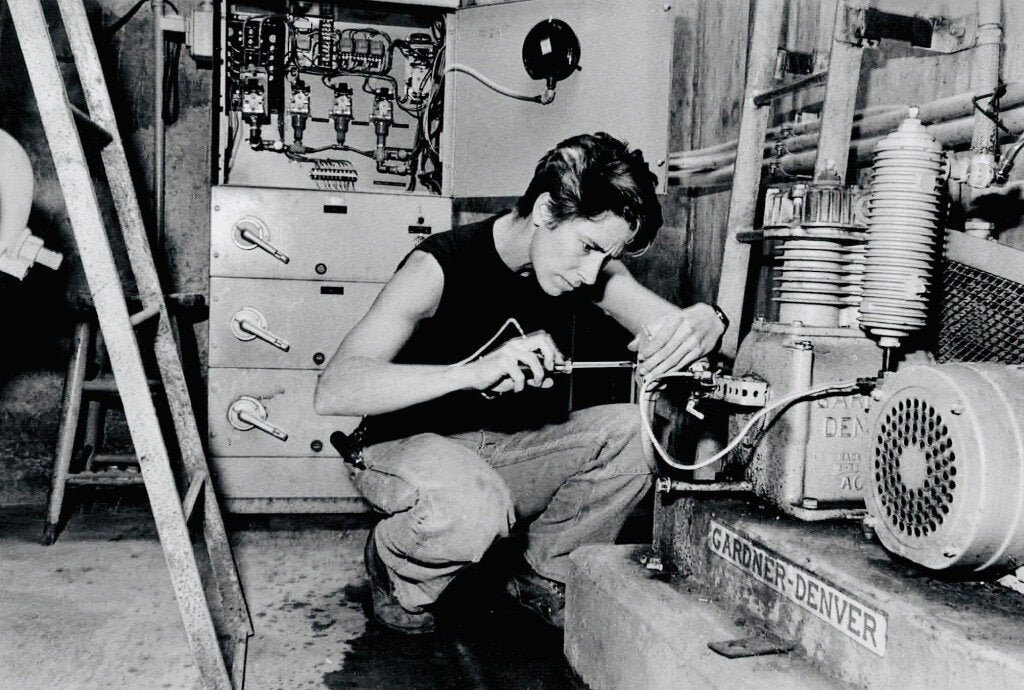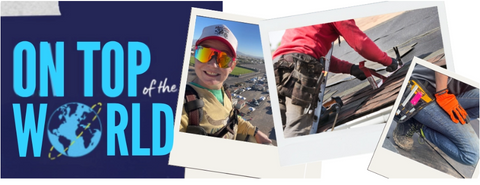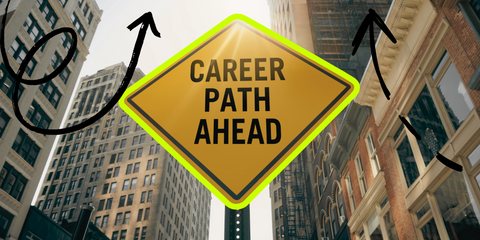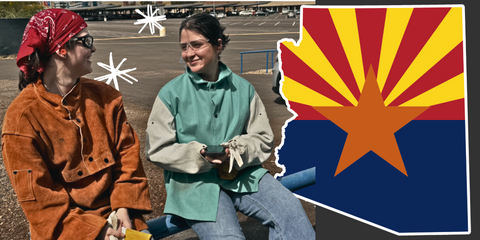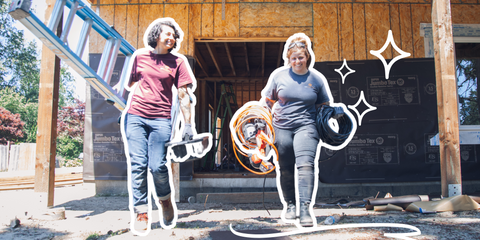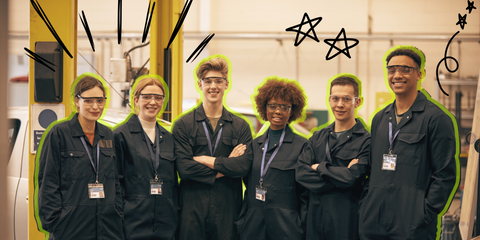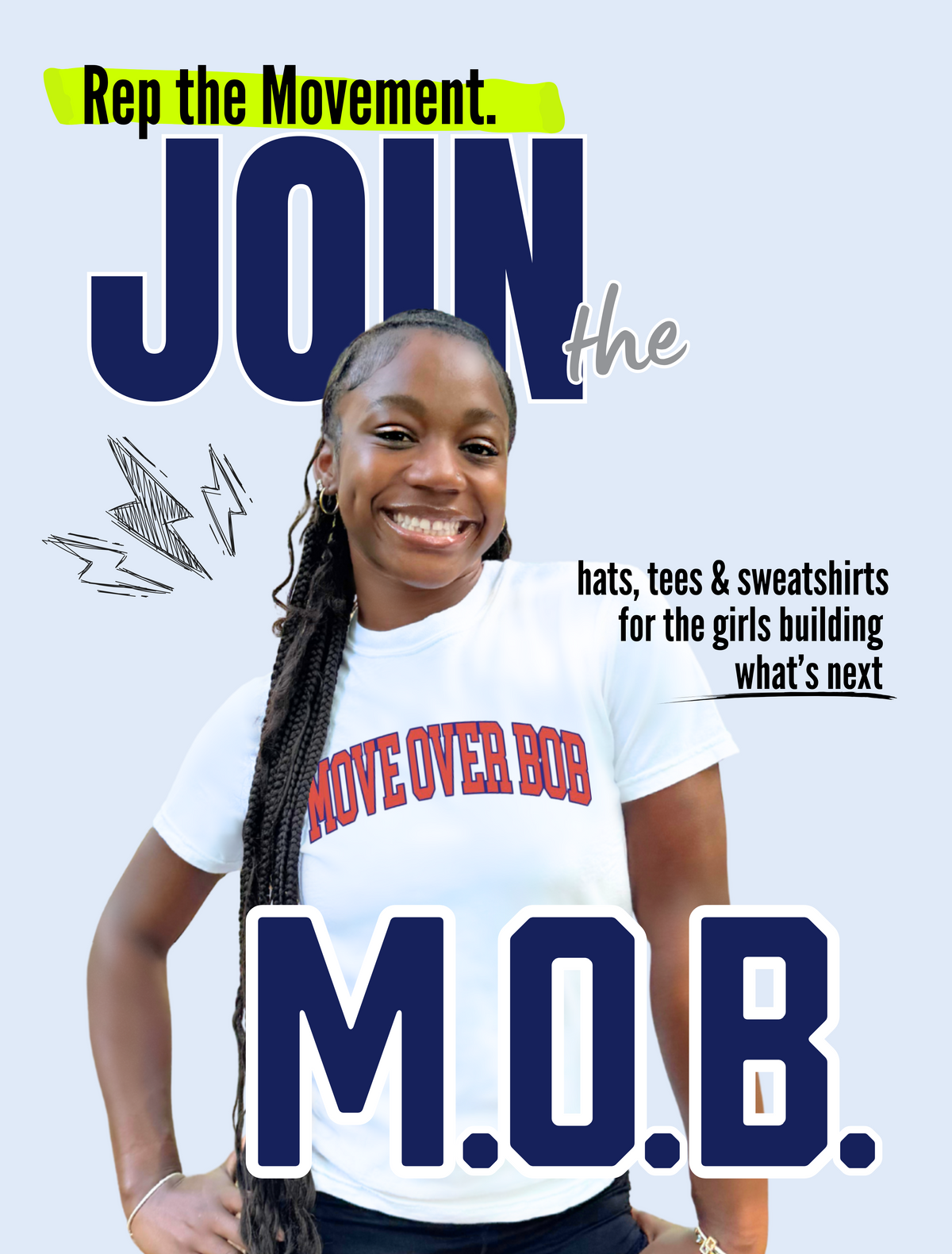I started following Molly Martin’s Blog https://mollymartin.blog/ a few years ago when I started posting on my own blog. We were both electricians, so it was neat to see what a kindred spirit was blogging about, and even more interesting to me was that Molly was already retired, whereas I was just starting my apprenticeship. She was my online mentor! I was excited to catch up with Molly for a conversation and wanted to share some of the inspiring conversation!
The first thing that she brought up when I told her I wanted to write this article for Move Over Bob, she asked me if I knew about the effort to write a book about the women working in non-traditional roles movement…
Molly: “A bunch of us old timers got together at the Women Build conference in Minneapolis last year, and said we're gonna write about our movement because who else is gonna do it. So we started it as a facebook page. Its called the Tradeswomen History Project, and we would love to have people collaborate with us in writing this book!
Also, all of the moveoverbob interviews should go to the tradeswomen archives at CSU Dominguez Hills.
And to further the collection of interviews, the Trades Women Task Force publishes a tradeswomen Tuesdays, interview. It would be great to connect more trades women there! Check them out: https://tradeswomentaskforce.org/about-us
Kahla: “I was wondering how you would introduce yourself Molly for this interview?”
Molly: “Well, how I want people to know me is as an organizer. I joined the feminist movement in the 60s, I was in college at Washington State University and I was in the middle of the women’s liberation movement and the antiwar movement. I came out of it a commie pinko queer! We had to learn about colonialism and imperialism, and it changed our world view, it changed how we lived our lives. And then when the Vietnam War ended, the men that I worked with were kind of bereft, like our cause disappeared. But I thought, I'm a feminist, I have plenty to work on and organize for the rest of my life! Hahaha
I learned about Title VII of the1964 Civil Rights Act (the law that guarantees equal employment rights in the USA) in college when our Women’s Liberation group advocated for female teachers who encountered terrible discrimination.
K: “Would you say a lot of your organizing is union organizing?”
Molly: “No, it hasn't been. I got in before unions were very accepting of women. They were for men not us. I didn't get very involved in my union. I am a member of International Brotherhood Of Electrical Workers local 6 out of San Francisco. I'm long retired now. The last job I had was as an electrical inspector for the City of San Francisco. That was a great job, another non-traditional job that had been closed to women.
I started as an electrician working with a friend doing small projects, as a contractor. Then I joined Wonder Woman Electric collective, an all-female company. We did mostly small residential projects, and some commercial. I worked with them for a couple of years. Then in 1980 there was a building boom, the union hall was empty, and they were crying out for electrical workers. I had to go before the executive board and show them that I was an experienced electrician, and then I got sent out to a jobsite. So I was kind of a backup and only worked out of the hall for a couple years, but I was really excited for the chance to work on downtown construction, because I hadn't done that before.”
K: “I imagine being an organizer was also very male dominated! Organizing, electrician, inspector, seems like anything you wanted to do you were up against hurdles! I'm curious, was that part of the appeal?”
Molly: “Yes, as a young feminist, the idea of being the first woman to do something was appealing, its true. And I was always the first woman! I went through a federally funded CETA training school in 1976 then came to San Francisco to start an electrical contracting business with a friend. I had tried to join the union in Seattle but I was told I was too old, I was 26. Their cut off was 25. That's why I didn't go through their apprenticeship program. A class action lawsuit against the Department of Labour regarding employment discrimination was resolved in 1978, and that's when union apprenticeship programs had to start letting us.
Feminist lawyers filed the lawsuit. Early on our movement depended on litigation. We would never have gotten far without the support of advocates. We are such a small movement, we need to collaborate with others who work for affirmative action.”
More about USA labour laws here.
K: “I don't think people understand or know about all the hard work that has happened by such small groups, fighting for human rights, in order to appreciate the huge impact of their work.”
Molly: “I was involved in a number of tradeswomen groups. We see ourselves as part of the civil rights movement. In the mid-70s I helped start Seattle Women in Trades. We followed an organization of mostly Black men. They were picketing job sites, really pushing the construction companies hard, because they’d been kept out of the union apprenticeship programs. So they were way ahead of us and had already filed a lawsuit. That's one of the reasons Seattle is further ahead of most other cities in this country with affirmative action in the trades because of the group, The United Construction Workers Association.
Another group was the women who worked for the city of San Francisco, SF Women in Trades. It started in 1984, to give each other support, because we were so isolated. We wanted the city to do something about sexual harassment which was just rampant. I’ve been thinking about that organization and its history, and recently read a study by the SF Commission on the Status of Women
The study shows that the number of women in trades is still only 3% or less, which is about the same as it was back in the 80s. But I think we pioneers made it possible for women to be on the job today. When I started you really felt like you just didn't belong but now I think working conditions have improved, even though there are still so few of us.”
K: “My experiences when I started in 2010, I felt both fairly welcomed and terrified at once, and I was blessed to have a few other women around as mentors to me. No one ever said to me I didn't belong there, or that I couldn't do the job. But sometimes I could tell they thought it. Yeah. Not everybodys going to change, not everybodys going to welcome everyone onto their jobsite, but the more people that purposefully do make it easier for other people.”
Molly: “ That's a really important point. And it's something we knew all along, that we needed a critical mass of women out on job sites in order to change the culture. We never got that. We thought the critical mass might be about 10%. Just from what we’ve seen over the years, such as the San Francisco Fire Department, which under a consent decree required 10% women in the department, it's a point where things change. There's another woman on the job with you, you're not by yourself. That was our goal. We would love 20%. We did have a campaign for 20% by 2020, but that went by, hahaha!”
K: “It's interesting a lot of people are talking about retention in the trades. Even if you have a lot of women starting in trades, women often drop out before finishing their apprenticeship. Not many people are so stubborn to stay when the workplace is toxic, lol”
Molly: “Yes, women drop out, but no more often than men. Tradeswomen are tough.”
K: “So when did you find trades as a job and what made you choose electrical?”
Molly: “I grew up in Yakima, Washington State. My father was a concrete salesman, my mother a secretary. Two of my three brothers are concrete finishers so I'm familiar with construction. I didn't know that electrical was the best trade, but I'm happy I picked it!”
K: “For me I did the research, I knew I wanted a job that made a certain wage, so I came up with: nurse, and electrician. And electrical came easier.”
Molly: “That is so scientific of you! A lot of women don’t think ahead like you did. They go to college or just start working after high school and don't make much money, then turn to trades later in life.”
K: “I was 25 when I decided. I was actually discouraged in school to do trades, they wanted us to go to university. I wasn't even allowed to take shop class! I graduated in 2001”
Molly: “Wow, even in your day? I wasn't allowed to take shop class either, but I graduated high school in 1967!
I've been writing about tradeswomen for many years, and was one of the founders of Tradeswomen inc, in 1979, in the San Francisco Bay Area, which is still going on! https://tradeswomen.org/. The goal of this group is to train and prepare women for trades and help them stay on the job once they get there.
In 1981 we started a national magazine called Tradeswomen.
It was volunteer run, written and produced quarterly by tradeswomen from 1981-1999. It's how we communicated with other programs across the country.
We are part of a movement that exploded in the mid-1970s all over the Western world. Women started demanding expanded employment opportunities. We wanted to have a part in building the infrastructure of our lives and we wanted better pay.
Tradeswomen organizations sprang up mostly in big unionized northern cities. We don’t focus on right-to-work states, because when there's no union the wages aren't that great. So construction jobs aren't as attractive to women or men.
K: “ I was curious Molly, as lesbian, do you think your experience as a tradeswoman is different than a straight woman’s?”
Molly: “ yeah, I think it is. Because if you come out on a job, it deflects the attention you’re gonna get from men on the job, it protects you in a way. I didn’t feel like men discriminated against me because I was a lesbian, it was because I was a female. Now I can’t speak for gay men, because I think their experience is completely different. My coworkers didn’t seem to mind the lesbian thing very much. I swear I don't know what goes on in their heads, but I felt like being out on a job was a good thing. I just wrote a story about this on my blog, called Work Boots Step Out of the Closet. I was the first female electrician to work for the city of San Francisco, and my partner at the time was the first carpenter. She was really supportive of being out on the job. She would say these guys are such gossips, being out gives them nothing to gossip about. At that time tradeswomen seriously debated the pros and cons of coming out on the job. It wasn't always so easy. You'd try to find the appropriate time to say it. You’d try to imagine the worst thing that could happen. I never personally lost a job and I wasn't beaten up. But what's the worst thing that can happen? Well a woman was killed by her coworker on the job here in California. Not for being gay but just for being female. Her name was Outi Hicks.
K:: “Do you have anything else you would like to mention for sharing with all these other wonderful tradeswomen?”
Molly: I made a great career in the trade, and now I make a great pension. I want that for other women.

You can read more of Molly’s experiences first-hand through her blog as well as other inspiring stories from other female activists like Madeline Mixer and Susie Suafai! Andbe sure to follow the Tradeswomen Archives on FB and their website!

